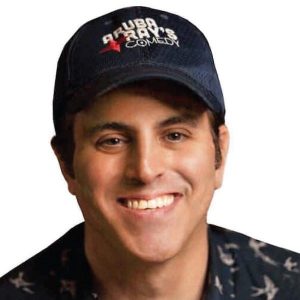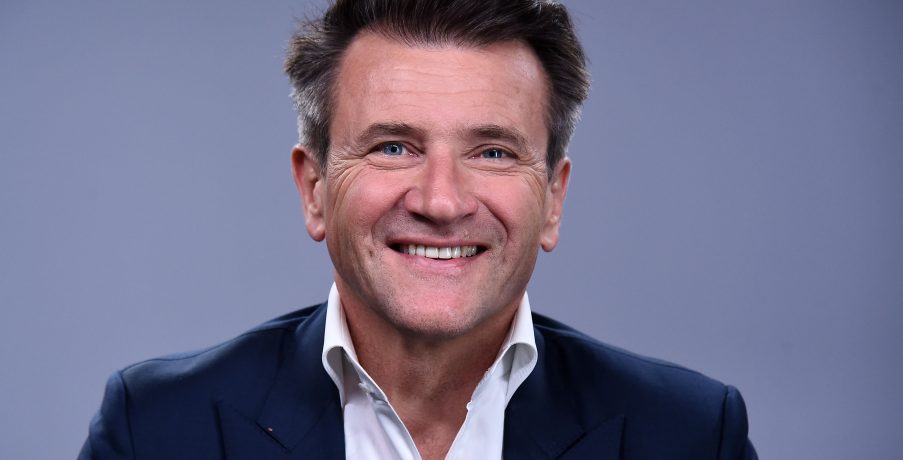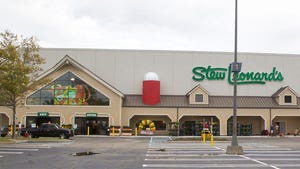
-
New Black Entrepreneurship Program Guides Members to Capitalize on Skills
Post Views: 615By Joe Connolly and Neil A. Carousso
NEW YORK (WCBS 880) — A new program has gotten corporate sponsors to fund 350 learning tools and videos to help budding Black entrepreneurs grow their businesses and tackle economic inequities exposed in the coronavirus pandemic.
The Black Entrepreneur Initiative has brought together a group of community leaders and entrepreneurs to guide 100,000 Black business owners, including journalist and actress Cathleen Trigg-Jones who started a production company in 2006 after working on then-Sen. Joe Biden’s communications team.
She told Joe Connolly on the WCBS Small Business Spotlight, sponsored by BNB Bank, that her first sale came while she was working as a news anchor for Fox 5 and My 9 in New York City and supporting her husband’s marketing and shooting and editing commercials for his medical practice.
“His business was growing and people started asking hm, ‘How did you do it?'” Trigg-Jones explained. “The clients started coming my way.”
Her company Catscape Productions produces entertaining and socially-focused content for networks, including NBC, CNN, FOX, TNT, MSG, MTV and CNBC. Trigg-Jones has acted in the CBS drama “Madam Secretary,” “House of Cards” on Netflix and SHOWTIME’s “Homeland.”
She told Connolly that her business, like many, started with a passion for media; she developed her business skills over time.
“Start a business because it’s something that you’re passionate about, something that you are an expert in,” Trigg-Jones said. “Customers are looking for authenticity.”
Through the Black Entrepreneur Initiative in partnership with The Lonely Entrepreneur, a New York-based nonprofit, members learn management tools, vendor relations, payroll and other foundational skills needed to grow a business.
Ambassadors, like Trigg-Jones, share their life experiences through weekly live coaching sessions intended to encourage Black entrepreneurs to fight through adversity and systemic issues they face. The Federal Reserve recently found white families earn eight-times the amount of typical Black families; economists believe the wealth gap is widening in the pandemic.
“I was left at an orphanage as a baby and I spent the first couple of years of my life in foster care,” she told WCBS 880 of her message to members.
“There are no mistakes in life. There’s just growth and there’s just opportunity if you just believe and if you’re open to it.”Learn more about Trigg-Jones’ inspiring story and the Black Entrepreneur Initiative on the WCBS Small Business Spotlight Podcast on the RADIO.COM app or the media player above.
-
Hungerthon 2020: ‘This is a crisis of epic proportions’
Post Views: 916It is estimated that almost 2 million New York City residents, or approximately one in four people, will face hunger this year.
In a normal year, New York City would see over 25 million visits to soup kitchens and food pantries by individuals and families to meet their basic human need for food. That number may triple because of the pandemic this year.
Noreen Springstead, the executive director of WhyHunger, a not for profit NYC-based organization working to end hunger and poverty, says we’re facing a crisis “of epic proportions.”
In an interview with WCBS 880 preparing for this year’s Hungerthon radio fundraiser Springstead said, “I think the pandemic has been illuminating to just how close people were living to the edge of being on a food line.”
Each year for the past four decades WhyHunger harnesses the power of local radio stations like WCBS Newsradio 880 to raise funds for their efforts and raise awareness to the fight against hunger and poverty.
Springstead, a guest on this week’s 880 In Depth podcast said, “Our work is more important than ever because the human need has increased dramatically.”
Springstead joined WhyHunger partner Dr. Melony Samuels from The Campaign to Fight Hunger in New York City, a Bed-Stuy, Brooklyn-based food pantry that has been on the front lines for more than two decades.
Dr. Samuels says her organization has seen a 75% increase in people coming to seek help this year because of the pandemic. In the first three months of the COVID-19 crisis they were literally running out of nutritious food to hand out to people in need.
“It had gotten to a panic stage” and Dr. Samuels says these next few months could be just as difficult.
“January, February, and March when no one thinks about hunger, that’s when it really hits,” Dr. Samuels said.
Springstead says, “These are Great Depression era soup lines, bread lines, food lines. We haven’t seen a hunger crisis like this.”
Hungerthon is a chance for New Yorkers or anyone across the WCBS 880 listening area to pitch in and contribute to this cause. WhyHunger partners with various organizations to present one-of-a-kind auction items that people can bid on with the proceeds going to WhyHunger.
All auction items can be found at Hungerthon.org.
WCBS 880 has our own list of experiences that we are offering this year like video meet and greets with various members of the staff including Wayne Cabot, Tom Kaminski, Joe Connolly, Craig Allen and Lynda Lopez. All of the 880 items can be found at Hungerthon.org/WCBS880.
One of the items we are also promoting is a virtual concert with Tom Chapin, the brother of WhyHunger founder Harry Chapin.
In an interview with WCBS 880 for Hungerthon, Tom Chapin told our Wayne Cabot and Tom Kaminski that this year is most important to help.
“We’re all facing this incredible pandemic now and its’ even worse right now,” he said.
The pandemic came in a year where WhyHunger and the Chapin family celebrated the release of a documentary about the life and work of Harry Chapin called “Harry Chapin: When In Doubt, Do Something.”
Tom Chapin told WCBS 880, “Think about it. He died in 1981, that’s 39 years ago and we’re still talking about him and these organizations, WhyHunger and Long Island Cares.”
Chapin said “it’s other people who have taken up the banner” after Harry’s death “and that’s exactly what we are doing today” with Hungerthon.
“There’s a way you can help, you don’t have to be Harry Chapin” but Hungerthon gives you a chance to “fill your shoes a little fuller and help those around you” as Harry used to do.
For more information visit Hungerthon.org.
-
Robert Herjavec’s pandemic advice to business owners: ‘When you’re going through hell… keep going’
In Best Of, Featured, Guest, Interview, Latest, News Stories, Technology, The World, Top News, videosPost Views: 909By Neil A. Carousso
NEW YORK (WCBS 880) — “Shark Tank” star Robert Herjavec believes the coronavirus pandemic presents an opportunity for entrepreneurs to fill needs and shares his advice for overcoming adversity on the WCBS Small Business Spotlight, sponsored by BNB Bank.
“Whatever you start doing today, your business will not be doing that in a year. Things change. The world changes. You have to adapt,” he said, adding he prefers to invest in individuals rather than single businesses on ABC’s “Shark Tank” for that reason.
“The entrepreneur will always figure out the path and the entrepreneur will build a great team in order to figure out the path,” he said.
Herjavec told Joe Connolly and Neil A. Carousso he started his first business after he was fired and needed to make a mortgage payment. He started other businesses in economic recessions.
“In this kind of a time, don’t perfect your product, don’t spend all this time on your management team or buying better software to run your business. Go sell something,” the self-made entrepreneur emphasized when asked for his advice for owners. “Sales cures all ills and the harder the economy, the harder the macro conditions, the more you need sales.”
A record 80,820 Americans have taken the first steps into entrepreneurship this year; that’s 30.6 percent more new business applications than all of 2019, according to the U.S. Census Bureau.
Herjavec represents the embodiment of the American Dream. His family escaped the former Communist country Yugoslavia in 1970 when Robert was eight years old. His father was a successful manager in Yugoslavia, but was jailed 22 times for speaking out about the dangers of communism. They immigrated to Canada where Robert’s father Vladimir swept floors in a factory.
His upbringing shaped Robert as a kid who sought to make something out of nothing, later founding BRAK Systems, which he sold to then-AT&T Canada in 2000 for $30.2 million. He currently runs the Herjavec Group – a global cybersecurity firm with its headquarters in Toronto, Canada.
“I’ve been through hell and I’ve been through some really hard times,” he told WCBS 880, recalling advice he lives by, “When you’re going through hell, you’ve just got to keep going.”
Herjavec told Connolly and Carousso that business owners who are struggling right now should take an honest assessment of the company and the market and be in contact with their customers regularly.
“The worst thing you can do in this time is nothing,” he said, continuing, “Don’t let fear overcome you to the point that you’re that deer in the headlights. You just got to keep going.”
Herjavec says he and his fellow Sharks did not know if their businesses would survive at the outset of the pandemic. He has not seen his employees in-person since February 17.
“I’m running a $300 million business; I haven’t seen a single employee,” he said from his Los Angeles home, noting it’s difficult to motivate his remote Herjavec Group team on video calls. So, Herjavec began expressing his appreciation through premium, savory cookies and brownies from Bake Me A Wish – a New York-based company whose mission is centered on expressing gratitude and appreciation for employees and colleagues.
“My dad was this blue collar guy, worked really hard, swept floors in a factory, and he always said to me, ‘You should thank people for the opportunity,'” he explained, adding, “I was just looking for a way to say thank you.”
Now, the ‘Shark Tank’ star is extending personalized gift baskets to companies who want to share their appreciation for their workers ahead of the unprecedented holidays. You can see Bake Me A Wish’s corporate catalogue, endorsed by Herjavec, here.
“You don’t have to be a jerk, you don’t have to be mean and I think it’s the opposite,” the Shark said of succeeding in business. “You’ve got to empower people. You’ve got to lead people. You have to give people vision of where they want to go.”
Watch Joe Connolly and Neil A. Carousso’s conversation with Robert Herjavec above for more business advice and keys to pitching your idea, product or business on “Shark Tank” or any boardroom.
-
Stew Leonard’s builds “buffer stock” as COVID cases surge ahead of Thanksgiving
Post Views: 841By Neil A. Carousso
NEW YORK (WCBS 880) — Stew Leonard, Jr. is stocking up for a second wave of the coronavirus. He and his suppliers do not want to be blindsided like they were in March.
“They’re all anticipating at least a 20 percent increase in buffer stock,” Leonard told Joe Connolly and Neil A. Carousso on the WCBS Small Business Spotlight, sponsored by BNB Bank.
The second generation owner of Stew Leonard’s supermarket chain headquartered in Norwalk, Connecticut said he did not predict cleaning products, paper towels and toilet paper would be in short supply when the pandemic hit the United States eight months ago, but now, he is prepared as the virus surges in a majority of states with hospitalizations rising, too.
“Our backrooms are stuffed right now with product and we’re buying as much Bounty and Charmin as we can get right now,” Leonard told WCBS 880.
He’s been reflecting on his father’s advice from when he took over the family business in 1987 – 18 years after Stew Leonard, Sr. opened the original store.
Leonard, Jr. told Connolly and Carousso his father advised he pay attention to his customers and “be really nice to your suppliers,” because they are providing the quality product shoppers expect.“I’m calling them up and I’m on my knees. I owe a lot of favors right now,” Leonard laughed. “You know ‘Game of Thrones’ where the guy said I have to bend a knee? Well, I’ve had to bend a knee a lot here.”
He said he is informing his suppliers – local farmers and fisherman among them – that he is still in business and they are his priority.
“Sometimes there might be a hiccup and they need something delivered and I’ll have some of our people go and deliver it to them because they’re in a jam,” he said, adding, “I would expect our suppliers to do that for us, too.”
Leonard told WCBS 880 it is imperative business owners in the food industry listen to their customers because they have no data to indicate how to prepare for Thanksgiving this year.
“The only way you’re going to get a little handle on it is if you really just say, ‘I’m going to talk to five customers a day,'” he advised. “They’ll give you a feeling of what it’s like, whether they want delivery, whether they want curb side, how they’re shopping, what their Thanksgiving’s going to be like.”
Leonard surveyed thousands of his customers and found 9 out of 10 are having small Thanksgiving dinners this year with immediate family in accordance with Centers for Disease Control and Prevention guidelines. That influenced his decision to reduce his typical order of large turkeys weighing 24-25 lbs. by 20 percent; he bought 20-25 percent more smaller turkeys that weigh 15-16 lbs.
Stew Leonard’s has seen a 600 percent increase in online orders in the outset of the pandemic as the supermarket implemented “triple cleaning” procedures and got rid of in-store buffets and bagel trays to prevent the spread of COVID-19.
While families save on eating out and entertainment because of the pandemic, there is more demand for quality ground beef and wine at Stew Leonard’s.
“They want to still make that restaurant-style meal at their house so we’re seeing our porterhouse steaks (and) our filet mignons (are) incredibly high in sales, and also, all of our prime beef that we offer at Stew Leonard’s has gone up tremendously,” Leonard said.
He tells WCBS 880 he has not raised prices in the pandemic. In fact, he gave his employees an extra $2 an hour in the first months of the crisis. He is restoring that boost ahead of the holidays plus Leonard is giving his workers an extra week’s salary at year’s end.
Watch Joe Connolly and Neil A. Carousso’s conversation with Stew Leonard, Jr. above or listen to it on the WCBS Small Business Spotlight Podcast.
-
Laughter and Love: Businesses Born Out of Pandemic Needs
Post Views: 758By Neil A. Carousso
NEW YORK (WCBS 880) — Some of the best businesses solve unmet needs.
Ray Ellin, executive producer of Comedy Central’s “This Week at the Comedy Cellar,” went from performing at New York comedy clubs to entertaining sales teams on Zoom after founding Comedy Cloud in May when a customer insisted he pivot to live virtual comedy shows.
“I had thought about it, but I was like, ‘There’s no way this is going to work,’” Ellin told Joe Connolly and Neil A. Carousso on the WCBS Small Business Spotlight, sponsored by BNB Bank.
He did not think Zoom comedy shows for businesses would be profitable, but now, he credits his Aruba Ray’s Comedy Club customer to his growing adjacent service.
“He really had to twist my arm. It was really something,” Ellin laughed.

Photo credit: Ray Ellin Businesses hire him for about $2,000 to provide hour-long comedic relief and engage their remote workers – many of whom have not been in the office for eight months – in a fast-pace virtual program featuring standup comics sidelined due to the pandemic. It has also served as a coping mechanism for Ellin whose older sister died from COVID-19 in March in Silicon Valley.
“I really felt like this would also provide me with a good purpose,” he told WCBS 880, continuing, “If I could try to boost the morale of people that are home alone in a similar situation, well, great, let’s give it a shot. Let’s see if this will work.”
Jenn Augustine of Floral Park has tackled adversity head on since she started her dream wedding planning business Forget Me Knots in 2018 while receiving chemotherapy and radiation treatments for breast cancer and carrying her first child at the same time.
“The first wedding that we ever booked, we did it in September, and a day later I had my double mastectomy,” she said, adding. “I wanted to make sure I was there and part of that wedding and loved every second of it.”

Photo credit: Jenn Augustine She has been cancer-free for two years this past September and her daughter is healthy as well.
When the pandemic hit, Augustine had been used to the mental health challenges of isolation, but her business was shut down. As Mother’s Day approached in May, she reached out to potential customers on Instagram with a new service: flowers. She wanted to support Long Island floral farmers she had been working with for wedding bouquets. She only expected a few orders, but was flooded with over 100 orders throughout the Tri-State area.
“There’s still a need for people to send joy and love and a lot of people do that through flowers,” said Augustine. “We realized that that side of the business really has been growing because when you don’t see a family member for a certain amount of time, you really appreciate them and the time that you do spend together, and you want them to remember, ‘Hey, I’m thinking about you.'”
Now, with weddings in New York capped at 50 people, including wait staff, she told Carousso her flower delivery business is more profitable. She is planning what she calls “micro-weddings” in clients’ backyards and small venues.
“I just recently did a wedding in Long Beach at the Allegria Hotel and they only allowed 40 people with 5-6 feet tables apart from each other, no dancing, you have to wear a mask when you get up from the table and they usually stay away from buffet-style eating. Everything is individually plated,” she said.
Augustine discovered micro-weddings are more intimate and fun because it is with a small group of close family and friends. Beaming with a positive outlook on life full of uncertainty, she fills the void of love.
Hear ideas for growing an adjacent service in the pandemic on the WCBS Small Business Spotlight Podcast on the RADIO.COM app or on the media player above.
Guest
Social Feeds

VIDEO: Told the airline to book us on the next flight out (SPONTANEOUS TRIP!)

VIDEO: The Taylor Swift Effect | WCBS Business Breakfast

VIDEO: Future of NYC | WCBS Business Breakfast

VIDEO: Reasons for New Yorkers to be Optimistic | WCBS Business Breakfast

VIDEO: NYC's AI Chatbot | WCBS Business Breakfast






